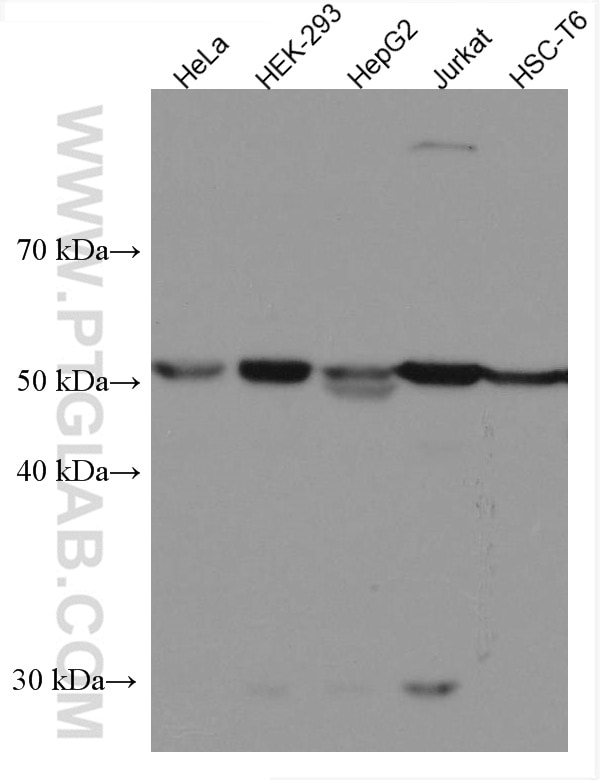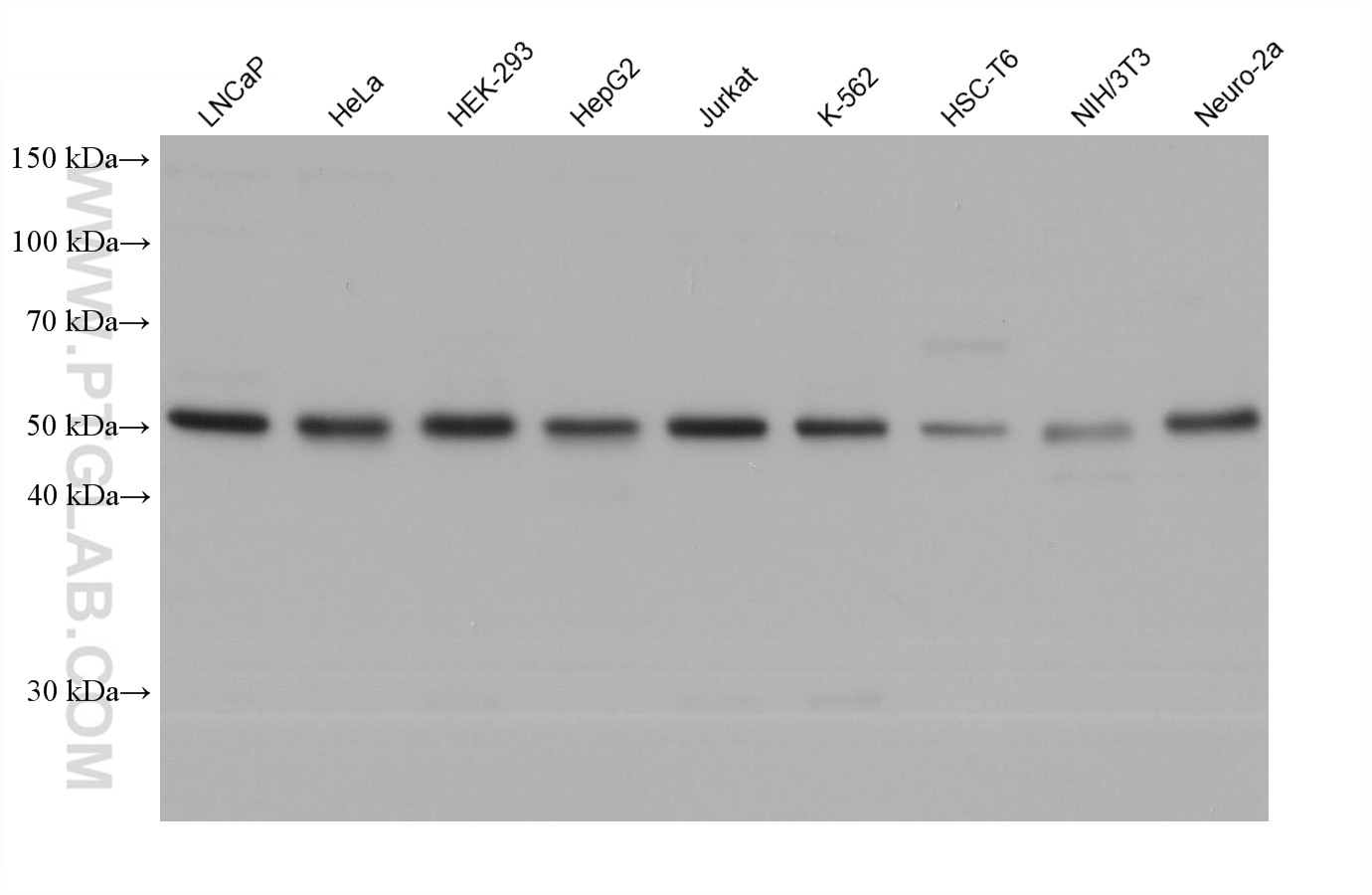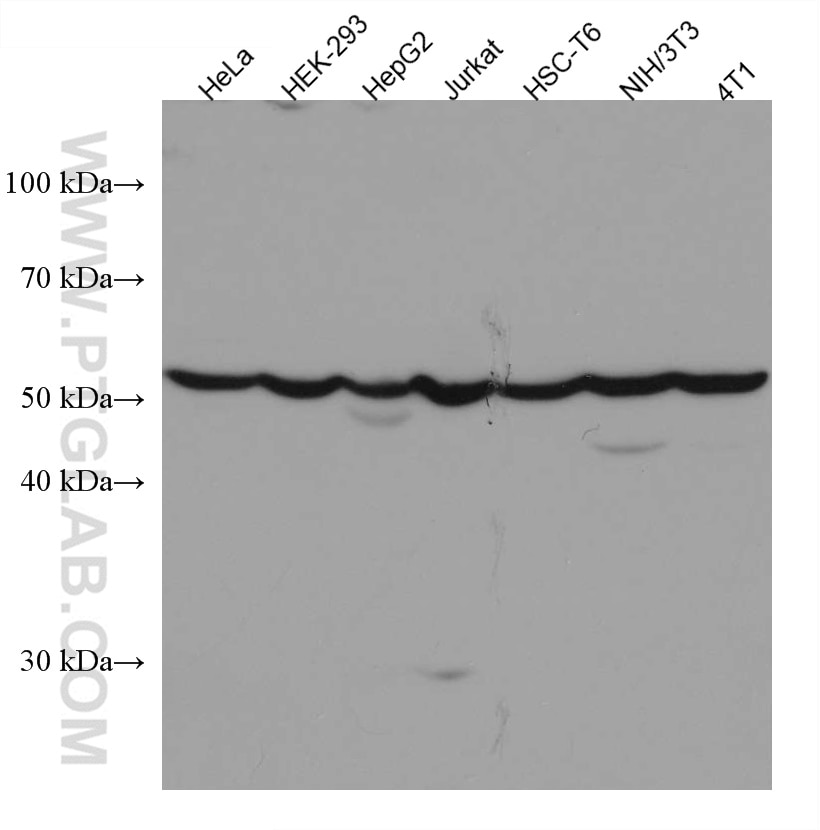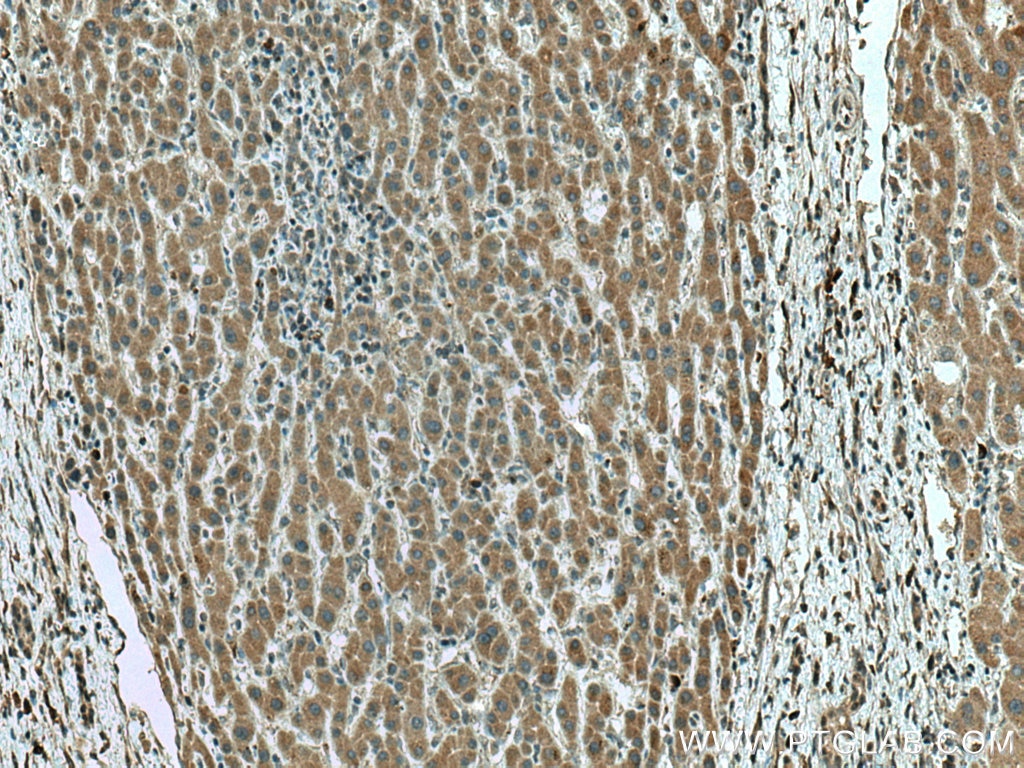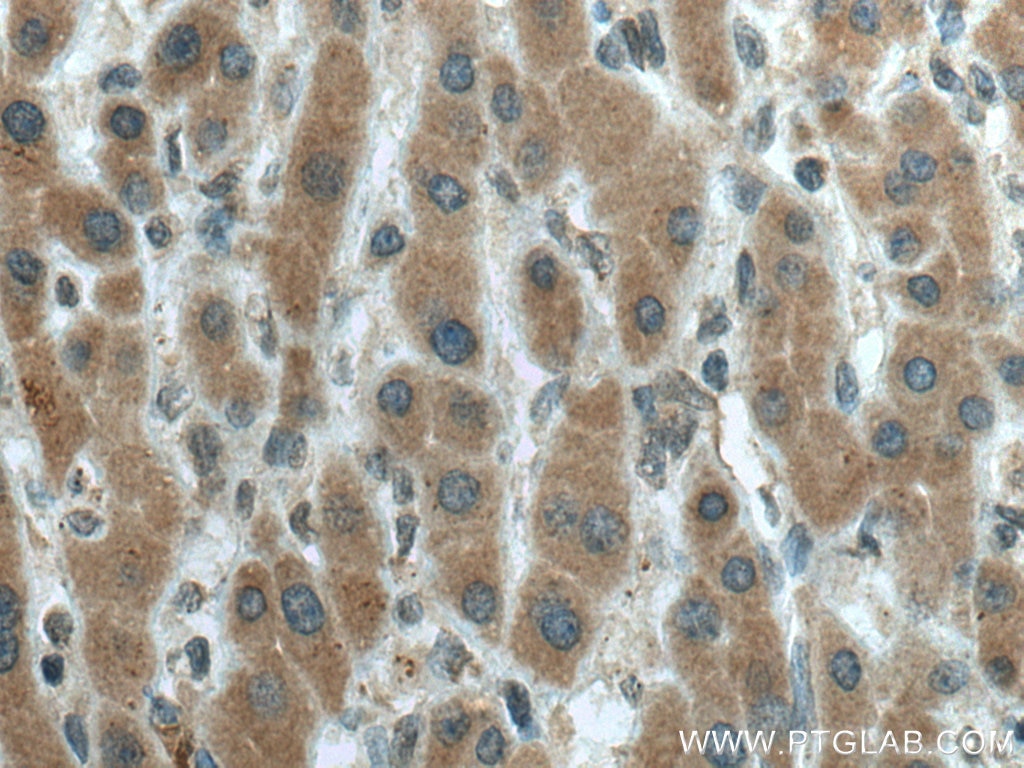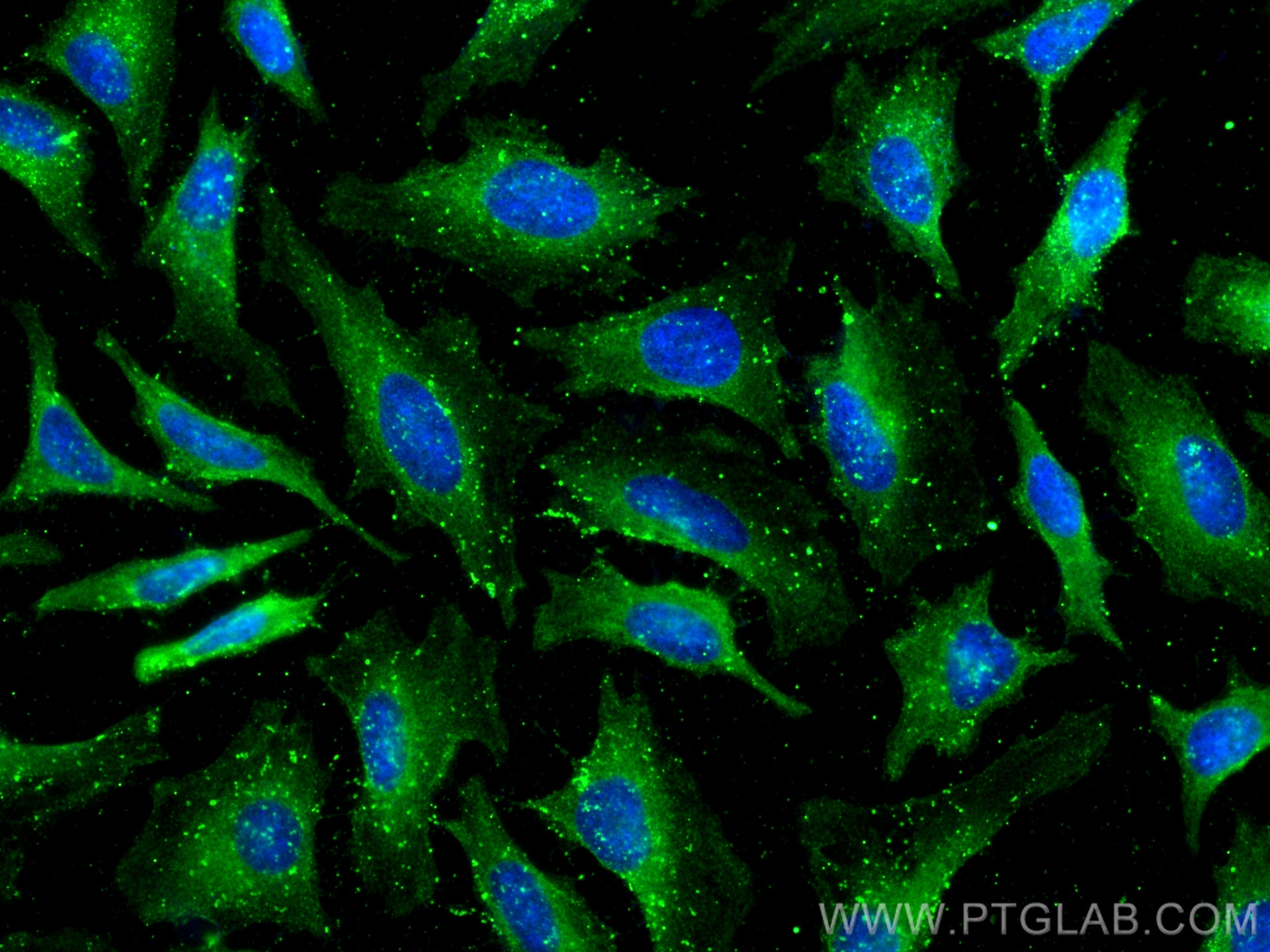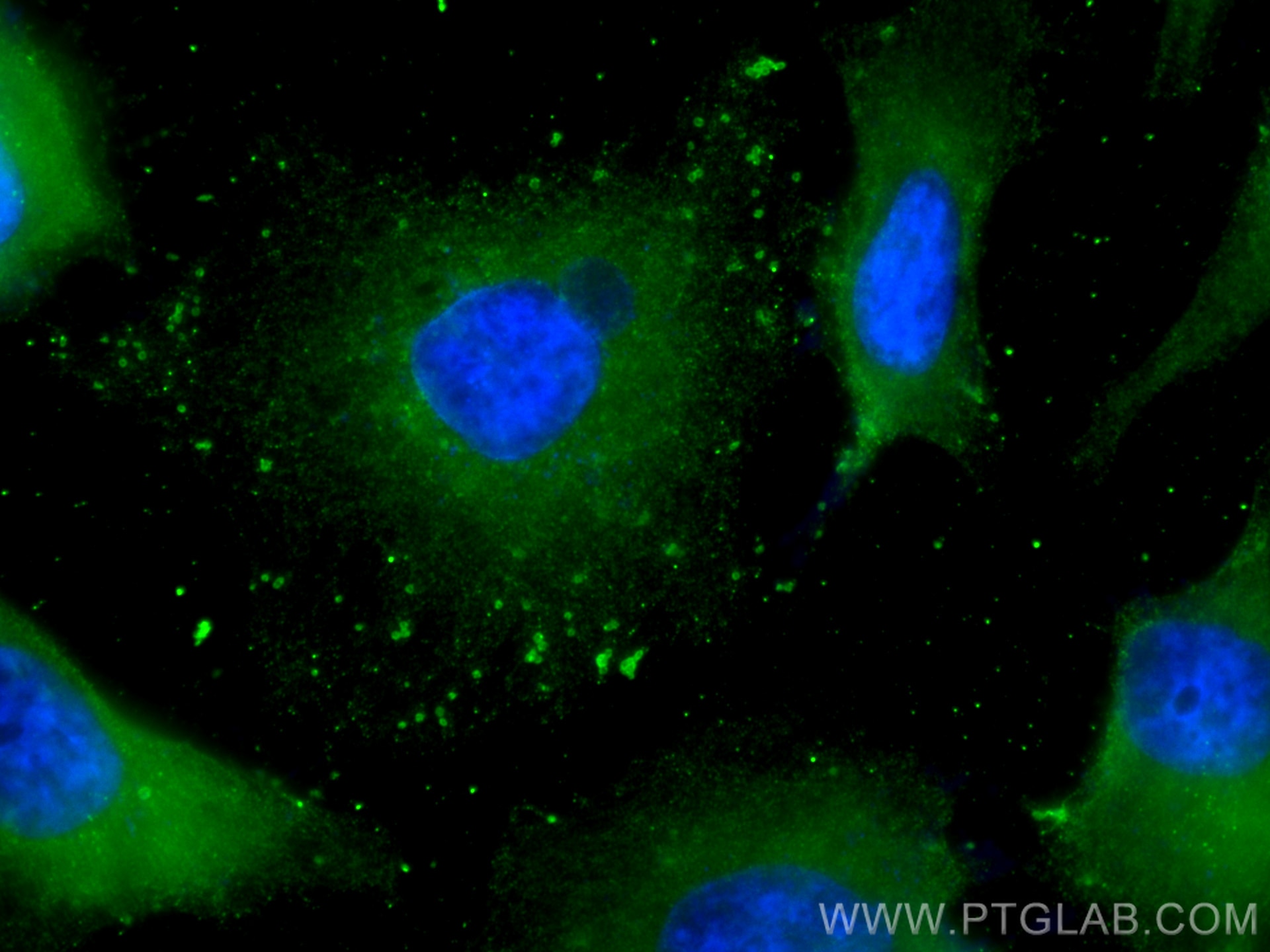CYP20A1 Monoclonal antibody
CYP20A1 Monoclonal Antibody for IF, IHC, WB, ELISA
Host / Isotype
Mouse / IgG1
Reactivity
Human, Mouse, Rat
Applications
WB, IHC, IF, ELISA
Conjugate
Unconjugated
CloneNo.
2A9E2
Cat no : 67433-1-Ig
Synonyms
Validation Data Gallery
Tested Applications
| Positive WB detected in | LNCaP cells, HeLa cells, HEK-293 cells, HepG2 cells, Jurkat cells, HSC-T6 cells, NIH/3T3 cells, 4T1 cells, K-562 cells, Neuro-2a cells |
| Positive IHC detected in | human liver cancer tissue Note: suggested antigen retrieval with TE buffer pH 9.0; (*) Alternatively, antigen retrieval may be performed with citrate buffer pH 6.0 |
| Positive IF detected in | HeLa cells |
Recommended dilution
| Application | Dilution |
|---|---|
| Western Blot (WB) | WB : 1:5000-1:50000 |
| Immunohistochemistry (IHC) | IHC : 1:250-1:1000 |
| Immunofluorescence (IF) | IF : 1:200-1:800 |
| It is recommended that this reagent should be titrated in each testing system to obtain optimal results. | |
| Sample-dependent, Check data in validation data gallery. | |
Product Information
67433-1-Ig targets CYP20A1 in WB, IHC, IF, ELISA applications and shows reactivity with Human, Mouse, Rat samples.
| Tested Reactivity | Human, Mouse, Rat |
| Host / Isotype | Mouse / IgG1 |
| Class | Monoclonal |
| Type | Antibody |
| Immunogen | CYP20A1 fusion protein Ag9715 |
| Full Name | cytochrome P450, family 20, subfamily A, polypeptide 1 |
| Calculated Molecular Weight | 462 aa, 52 kDa |
| Observed Molecular Weight | 49-52 kDa |
| GenBank Accession Number | BC020616 |
| Gene Symbol | CYP20A1 |
| Gene ID (NCBI) | 57404 |
| RRID | AB_2882671 |
| Conjugate | Unconjugated |
| Form | Liquid |
| Purification Method | Protein G purification |
| Storage Buffer | PBS with 0.02% sodium azide and 50% glycerol pH 7.3. |
| Storage Conditions | Store at -20°C. Stable for one year after shipment. Aliquoting is unnecessary for -20oC storage. 20ul sizes contain 0.1% BSA. |
Protocols
| Product Specific Protocols | |
|---|---|
| WB protocol for CYP20A1 antibody 67433-1-Ig | Download protocol |
| IHC protocol for CYP20A1 antibody 67433-1-Ig | Download protocol |
| IF protocol for CYP20A1 antibody 67433-1-Ig | Download protocol |
| Standard Protocols | |
|---|---|
| Click here to view our Standard Protocols |
